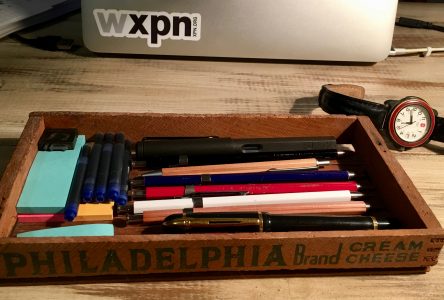
In a society where so much of our precious time and energy is spent online, or at our jobs, it is important to take a step back in order to re-center ourselves, and recognize what is truly important in our lives. Odell illuminates the importance of removing one’s self from the “attention economy”, in other words, disengaging from social media and investing that time or effort into something else meaningful. In chapter two, Odell writes about the experience of Levi Felix, “In 2008, at the age of twenty-three, Felix had been working seventy-hour weeks as the VP of a startup in Los Angeles when he was hospitalized for complications arising from stress. Taking this as a wake-up call, he travelled to Cambodia with Brooke Dean, his girlfriend and later wife: together, they unplugged and discovered mindfulness and meditation of a distinctly Buddhist flavor.” Feeling immensely overwhelmed, Felix recognized his need to disconnect and go through some sort of “digital detox”. This story resembles that of Odell’s father’s experience she writes about in chapter one, he takes off from work for two years where he is able to spend time doing things he enjoys and deems “productive”, contrary to societal standards. After this time off, Odell’s father is described as having a new sense of clarity and creativity, which greatly benefits him when returning to work where he is able to create several new patents.
Neither Odell nor Felix are advocating for people to completely quit using technology and social media all together, rather both urge individuals to use it more sparingly. “Felix was particularly concerned with the addictive features of everyday technology. While he wouldn’t disavow technology entirely, claiming to be a ‘geek, not a Luddite,’ he thought that people could at least learn a healthier relationship to it.” When hearing the word “addiction” most of us tend to think about drug and alcohol abuse, however it has become more apparent that a great deal of individuals are addicted to their phones, computers, and social media. It can be difficult to recognize such addiction in one’s self due to the fact that technology and social media are so prevalent, useful, and normalized in everyday life. Various studies and articles have outlined the similarities between drug or alcohol addiction with that of technology. While seemingly very different, each causes the user to experience neurological complications, psychological disturbances, and social problems. Odell says, “In other words, digital distraction was a bane, not because it made people less productive, but because it took them away from the one life they had to live.”
In my own personal experience, I’ve gone on several family vacations where the wifi and internet connection were sparse, meaning there were less opportunities to go on my phone or computer. This proved to be beneficial in that I was more engaged with the people around me, and was able to enjoy different activities without distractions. However, as Odell mentions “I’ve already written that the “doing nothing” I propose is more than a weekend retreat.” Of course it was easier for me to disengage from the “attention economy” while on vacation, as I was constantly busy exploring, going to the beach, and spending time with family; in other words I probably would not have been on my phone regardless of wifi or internet connection. Another experience, perhaps the most eye-opening, occurred several months ago. During my senior year, I took a psychology elective course where we learned about numerous topics, one being addiction. My teacher described the word in layman’s terms, saying that addiction (to anything) is the point at which your indulgence makes your life unmanageable. Odell urges readers to actively restrain from indulging in the “attention economy” and claims that “distractions keep us from doing the things we want to do …long term, they keep us from living the lives we want to live.”
In this class, we performed an experiment where our teacher took everyone’s cellphones for two days. Our job was to document how we felt, or what we did and thought during this time. My experience was quite strange as it included many ups and downs. During the time this social experiment was conducted, I was on crutches because I had previously broken my ankle, meaning I was already feeling very physically limited. Without my phone for two whole days, not only did I feel physically limited, but also socially limited. I couldn’t text friends, check up on social media, or even google something I was curious about. While these factors were upsetting, contrarily I was also able to focus better on my homework without the distraction of my phone by my side, and was able to converse more openly with the people around me, rather than friends over text. I realized that although not completely enjoyable, the mini “digital detox” I went through was beneficial to me, and I began to limit my use





